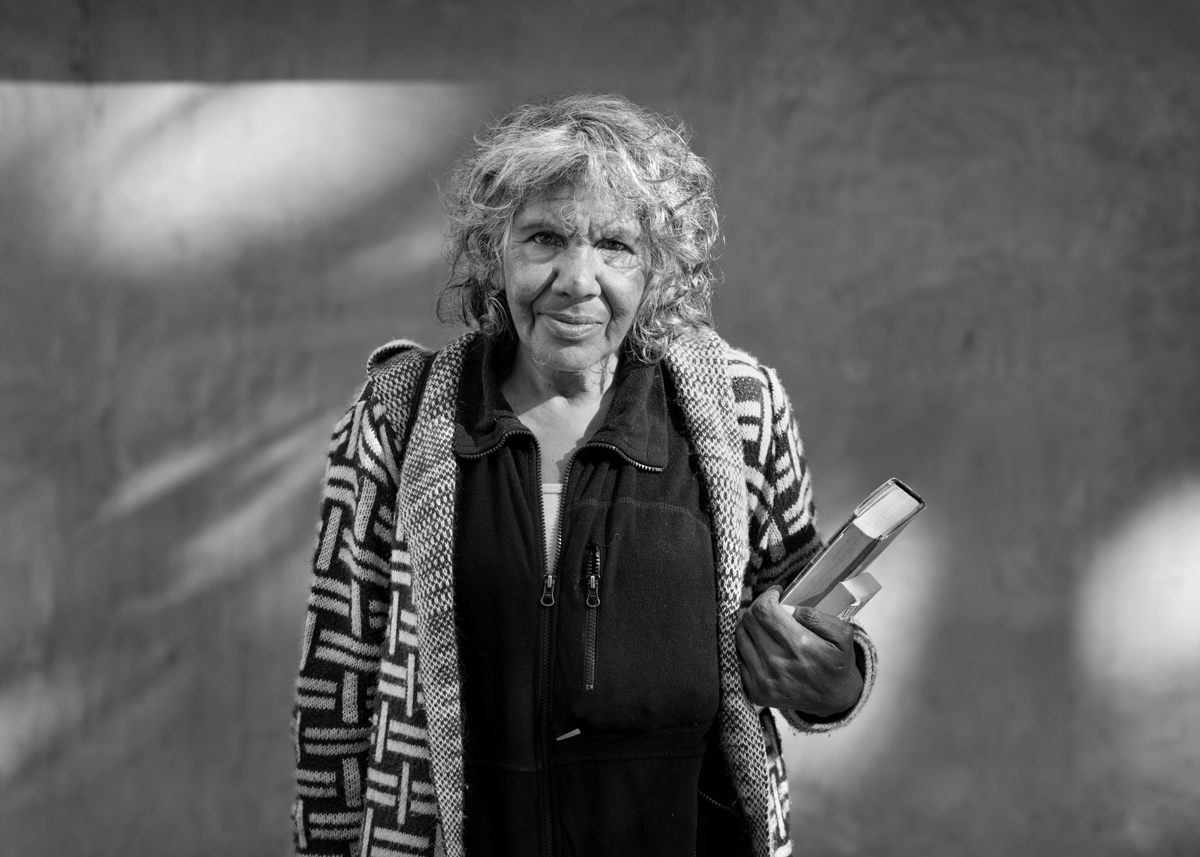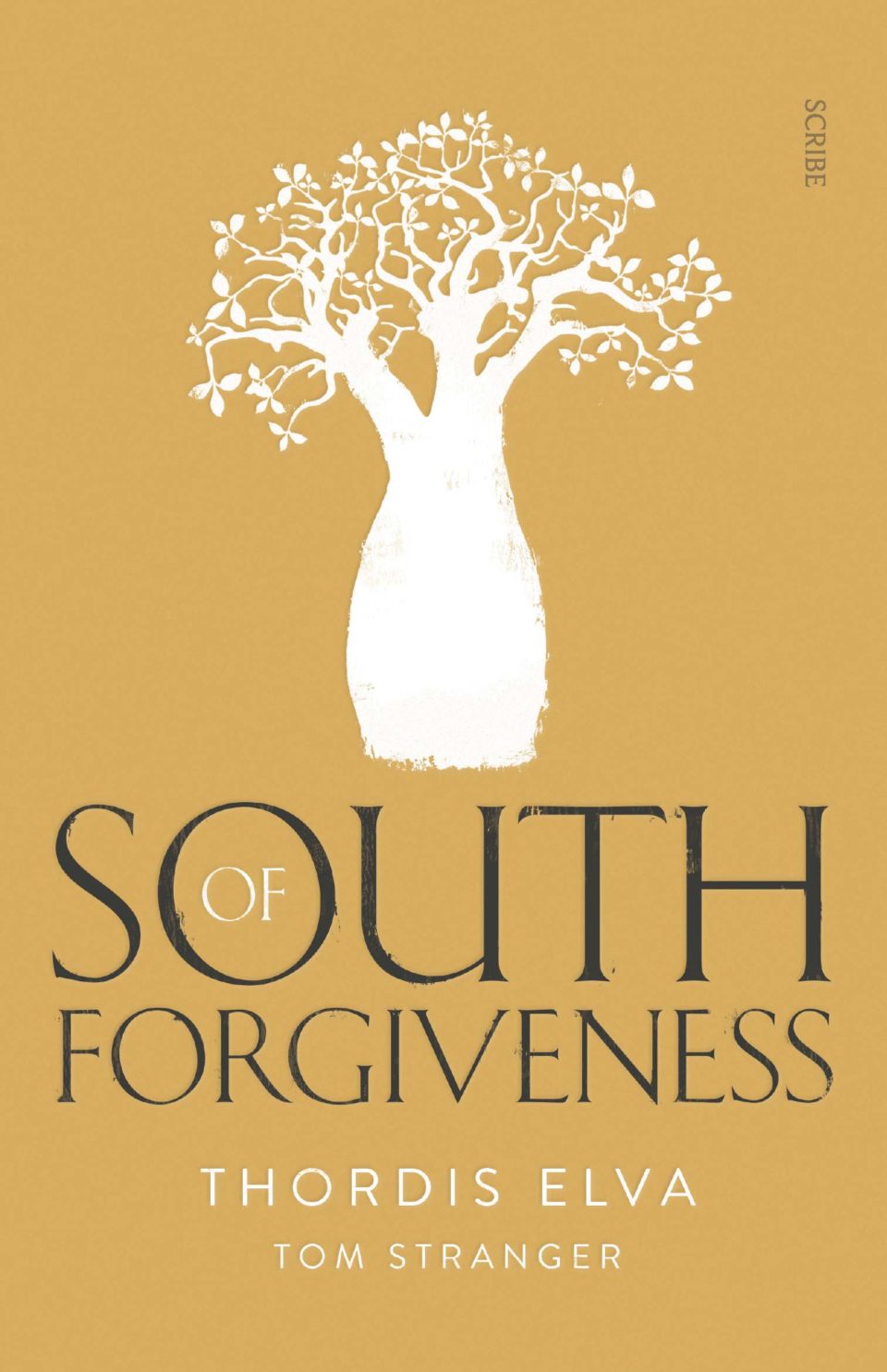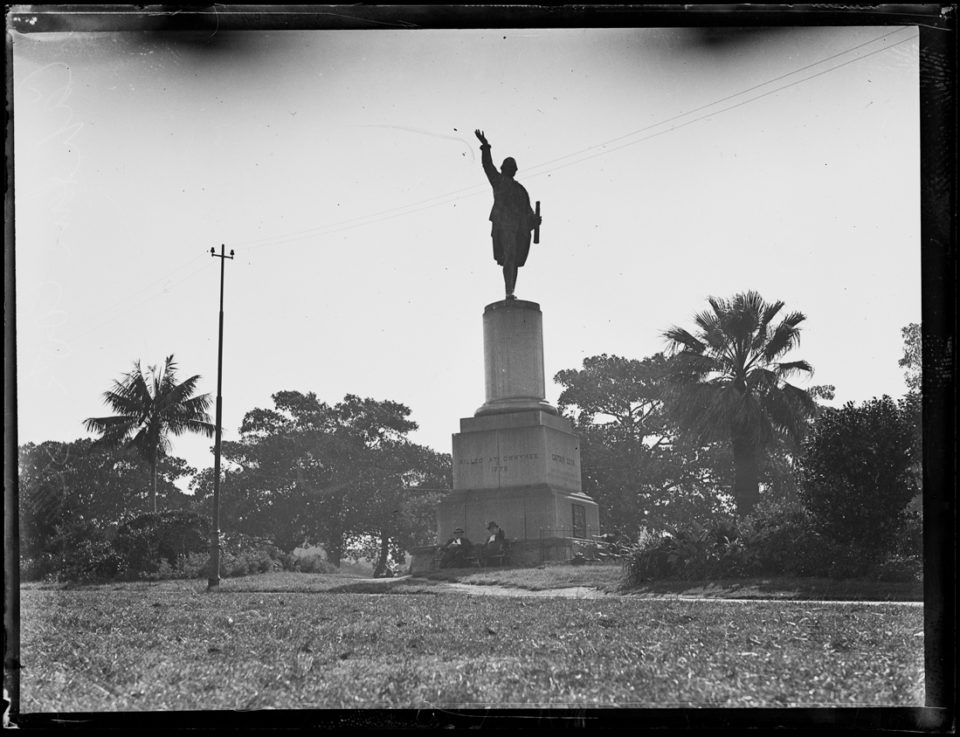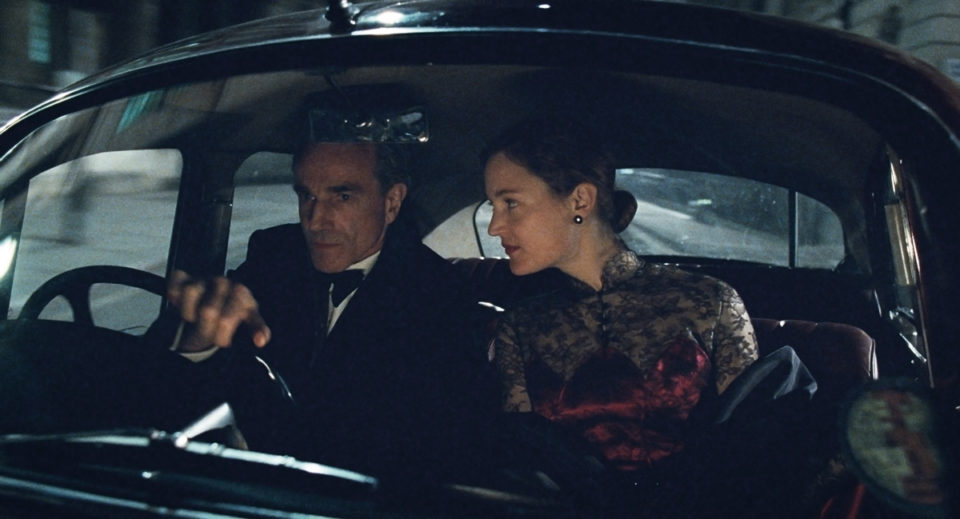She shuffles along the street, head down, a scrambled bag of belongings clutched under one arm, a small bottle of Coca Cola in her hand.
When she’s not bustling, she’s beseeching.
“Hey, brother, can you help me?”
Or she might just be sitting, hunched, on a milk crate, quietly reading, oblivious to passers-by.
If you’ve spent any time around Kings Cross, you’ll know I’m talking about Rose. Aunty Rose. Roslyn. Rosie. She’s been a presence on the streets of the Cross for about as long as anyone can remember. Her favourite ‘fishing spots’ nowadays, to solicit a little help, are along Macleay Street, where she casts her line into a stream of increasing affluence, benevolence and, just possibly sometimes, guilt.
“Hey, sister…”
Rose is not everybody’s darling (who is?) but she has a carefully cultivated cohort of friends and supporters. While many people cross the road to avoid being asked for money, locals often eagerly approach Rose, just to say ‘hi’, have a chat and maybe give her something more tangible, be it money, half a roast chicken from Woolies, or a slightly dog-eared book.
Rose’s fame is an awkward kind of celebrity.
At the time of the 2011 Census, there were more than 100,000 people homeless in Australia; 28,190 of them in New South Wales. There’s little doubt those numbers have grown significantly since. Aboriginal people, such as Rose, and Torres Strait Islanders made up 2.5 per cent of the Australian population in 2011 but 25 per cent of people who were homeless on Census night.
The latest street count in February this year found there were 433 rough sleepers in the City of Sydney local government area, and 489 in crisis or temporary accommodation. On the night of the February count, 11 per cent of beds at St Vincent’s Hospital were occupied by people of no fixed address.
It’s caused Lord Mayor, Clover Moore, to call for a multi-agency task force to tackle the problem. Do not hold your breath! Though Moore also advocated more ‘housing first’ initiatives such as Common Ground or ‘The Camperdown Project’ in which accommodation comes with on site support services.
From what she has told me of it, Rose’s story, like everyone’s, is complex, and arguably not mine to tell. ‘Homelessness’ itself is also complex, as is how best to run the gauntlet of those on the street soliciting our spare change.
Ignore them all, or give something to everyone? Better to donate to drug and alcohol rehabilitation, mental health or domestic violence support services, or charities such as Mission Australia? And what about those tabloid media stories about beggars making hundreds of dollars a day and living in luxurious ‘McMansions’? Does my ‘niceness’ do more harm than good?
It gets more confusing. Not everyone defined by the statisticians as homeless sleeps rough. Not all homeless people beg; not all beggars are homeless. And, like the endearing crooner in the Devonshire Street Tunnel who pretends his plastic water bottle is a microphone, there can be a fine line between busking and begging.
By any official measure, Rose has been homeless for a long time, although not always roofless, and while she seems to do better in the begging stakes than many of her nearby competitors, she’s clearly not about to be able to put a deposit on an overpriced piece of Sydney real estate any time soon.
Potts Point resident, Elena Roberts, has known Rose for about twelve years, and first met her when crossing Oxford Street at Taylor Square late one night. She says she probably tends to favour Rose over others asking for help for one particular reason.
“Rose once stopped me as I was rushing past her on the way to somewhere,” Roberts says. “And she said something like ‘I don’t need you to give me money, but please don’t ignore me.’ That really stopped me in my tracks. I don’t always give her money, but I’ll always give her a ‘Hello, how are you going?’”
Koryn Lloyd, another Potts Point local, says she often stops to chat with Rose. She has given Rose money to travel back to her hometown, Moree. Lloyd has also given Rose watermelon and cartons of milk. “She’s very particular,” Lloyd says, smiling. “She’s made it clear she only likes full cream milk.”
I get that. Rose once asked me what she should do with a fine bottle of wine she’d been given by another well intentioned soul.
“I don’t drink!” she said.
Local shopkeepers also look after Rose, offering bread, soup, a soft drink.
But it’s not all take with Rose. Recently, I walked down Macleay Street and saw her cradling a small dog in her arms, at one of her usual spots, outside Woolworths. Its owner exited the supermarket, looking more than slightly alarmed to find his beloved pooch clutched in the arms of an apparent itinerant. He demanded to know what was going on.
Rose calmly explained that his dog slipped off its leash wrapped around a pole, and bolted off down the street. Rose moved quickly, plucked him off the pavement, before he could get too far, kept him in safe custody.
The owner took a breath, then said, “Thank you, I appreciate it.”
Rose recently got a more permanent place to stay, in the Inner West. But she still returns to the Cross, almost daily. Like I said, it’s complicated. But also strangely reassuring to know she hasn’t completely left the neighbourhood.





